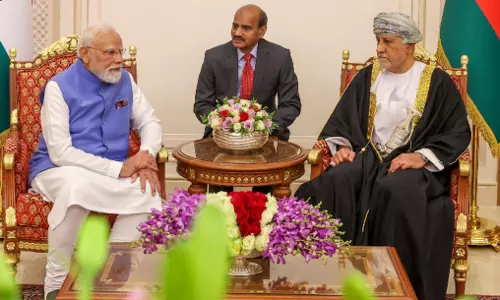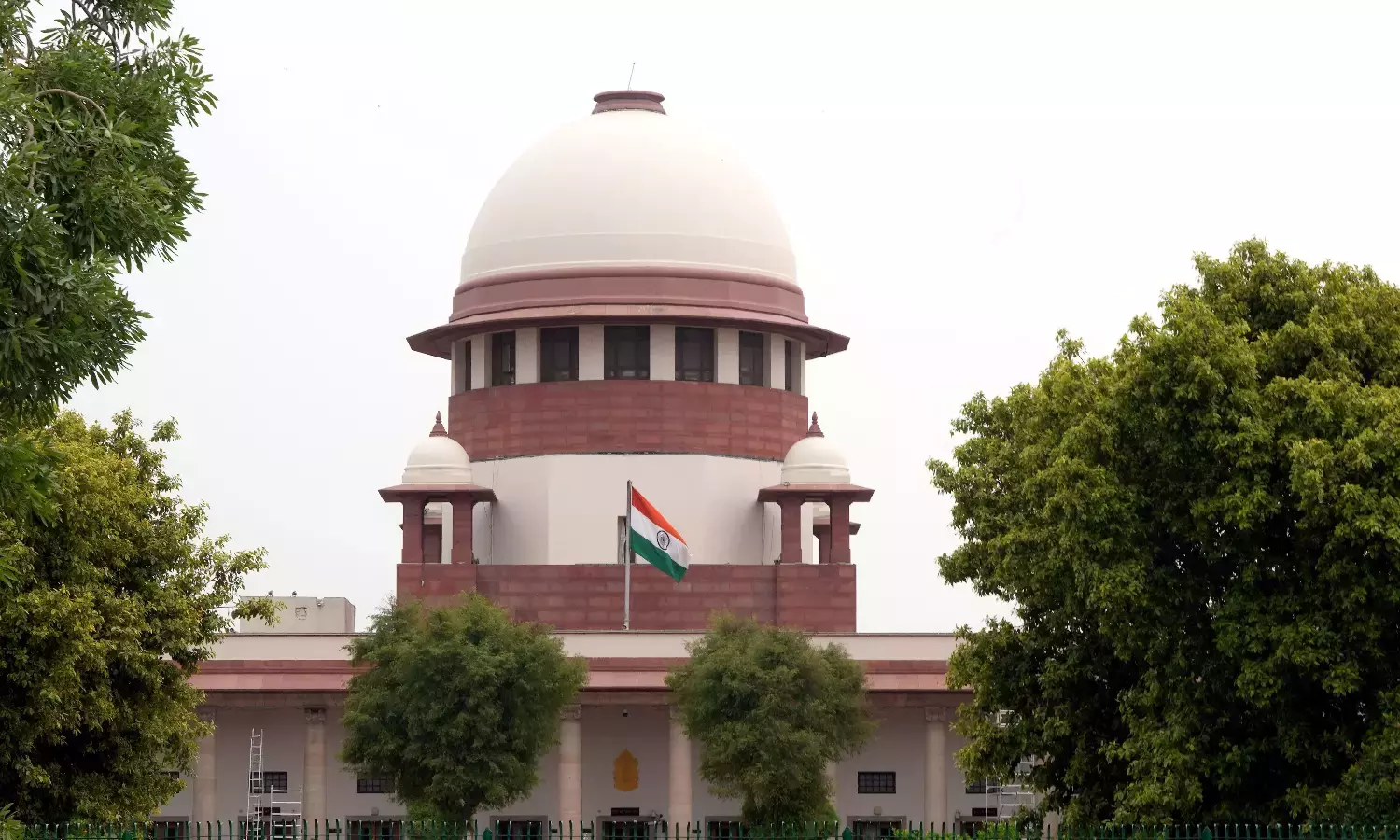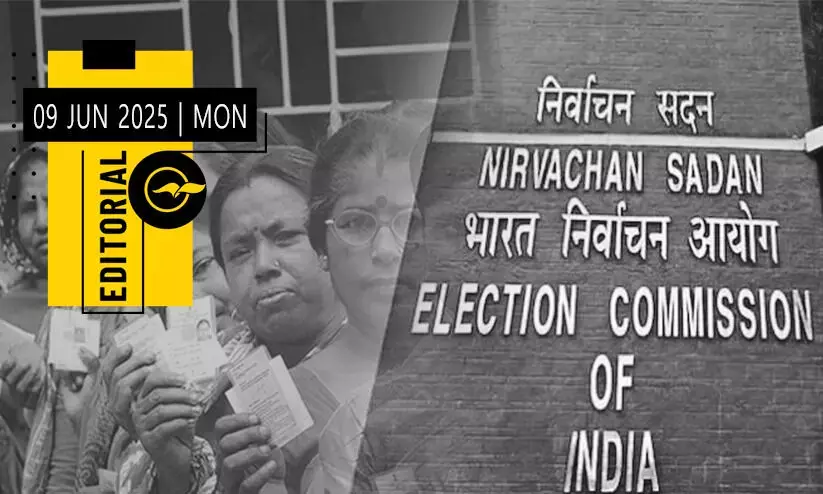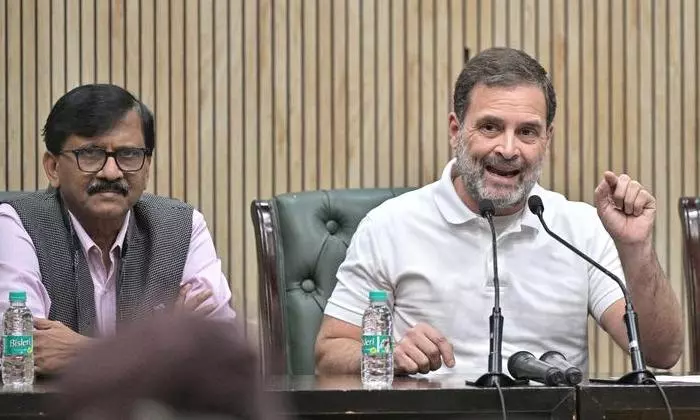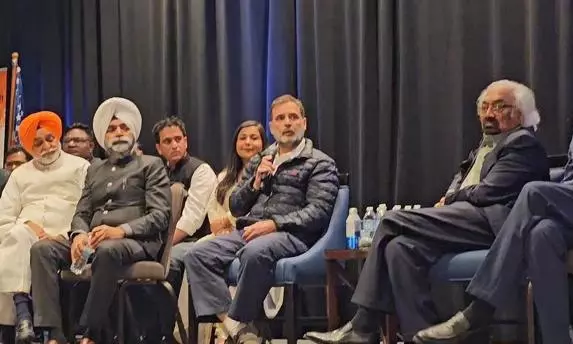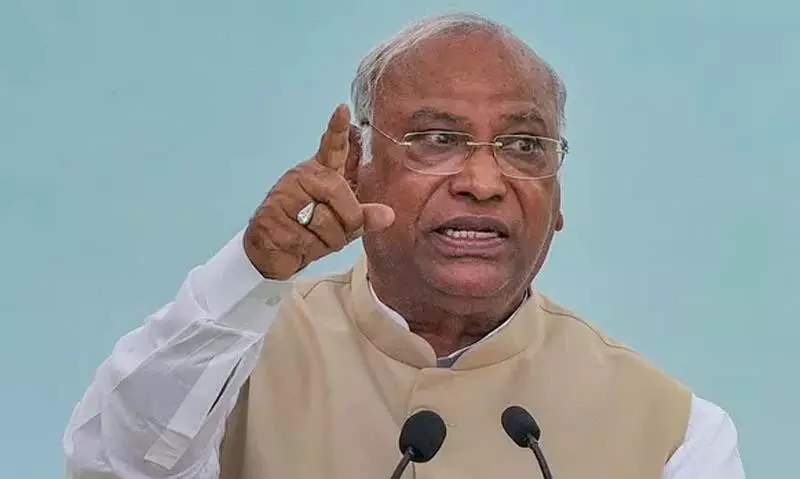
If Election Commission is not independent
text_fieldsThe article written by the Leader of the Opposition in the Lok Sabha, Rahul Gandhi, alleging possible rigging in India's elections, especially in the Maharashtra Assembly elections last year, and the Election Commission's response to it have become a subject of serious debate. Rahul Gandhi points to the deteriorating health of democracy by highlighting some of the factors that have undermined the credibility of the electoral system. He has made five serious allegations. The first of them is the Modi government's 2023 amendment to the law that has eroded the credibility of the Election Commission. Until then, there was a fairly transparent and fair system for appointing Election Commissioners. The committee that appoints the commissioners consisted of the Prime Minister, the Leader of the Opposition in the Lok Sabha and the Chief Justice of the Supreme Court. But with the Modi government removing the Chief Justice and replacing him with the Union Home Minister as the third member, the selection of commissioners became virtually an act of the government. When the people contesting the elections themselves became the ones who appointed its supervisors, the impartiality of the Election Commission was lost. Its credibility was questioned. This paved the way for crucial rigging in the Maharashtra Vidhan Sabha elections. Rahul Gandhi says that the sudden increase in the voter list has turned the results in favour of the BJP in many constituencies and that this increase is unnatural.
The increase in the number of voters in the voters' list recorded in five years from 2019 to 2024 occurred in judy five months between the 2024 Lok Sabha elections and the assembly elections. This unusual increase in the voter rolls was matched by an increase in the number of people who turned up to vote—especially in the last hour of voting. The voter turnout at 5 pm was 58.22 per cent; the voter turnout released the next day was 66.05 per cent. This excess of 7.83 per cent (76 lakh voters) is questionable. The concentration of these extra votes was in constituencies where the BJP had a low voter turnout in the Lok Sabha elections. The Election Commission has responded strongly to the allegations: the election system is questioned only when the results are against it. The explanation given by the Commission for the high voter turnout is that it is the result of an effort to educate the voters. It also says that the allegation that the Commission rigged is false. The Commission reiterates that all voting methods are transparent. There were agents of the parties in every booth. None of them has raised any allegations. The Commission had given a detailed reply to the doubts raised by the Congress in December last year. In fact, it raised more doubts that day. Moreover, the questions raised by the opposition parties in the press conference later were not answered. The explanation is that the increase in voters is the result of awareness. That is not enough to justify the fact that the increase over five years previously, has happened in Maharashtra in five months. There is also no explanation for the unnatural jump in the voter turnout. Another is the influx of voters seen in some specific booths after 5 pm. Rahul Gandhi has asked how the voting, which should have taken about ten hours more with an average of 600 in a booth, was completed earlier and how so many votes were recorded.
The importance of the new allegations lies in the fact that the previous explanations of the Commission are inadequate. Rahul emphasizes that he took only the official figures of the government and the Commission for his arguments. Moreover, in an election where utmost transparency is required, the authorities are destroying even the extent of transparency that existed. The government is showing extraordinary diligence in hiding crucial information. In Haryana, when the High Court ordered the release of documents, including CCTV footage, related to the Haryana elections to a complainant, what the government did was to hurriedly change the rules to stall it. And this was done on the recommendation of the Election Commission. If there is nothing to hide, why was this done? Security and voter privacy are being cited to justify this. This concealment raises suspicions when the transparency that had existed for so long had not compromised privacy or security. There are also many examples of bias in government institutions. In Delhi, there are complaints that minority communities were singled out and excluded from the voter list; in Uttar Pradesh, the police stopped those who were likely to vote against the BJP, and the BJP's interests were considered in determining the polling dates. The credibility of elections cannot be restored without doing two things. First, the committee that appoints the Election Commission must be made independent. Second, the transparency that has been lost in the procedures must be restored.





